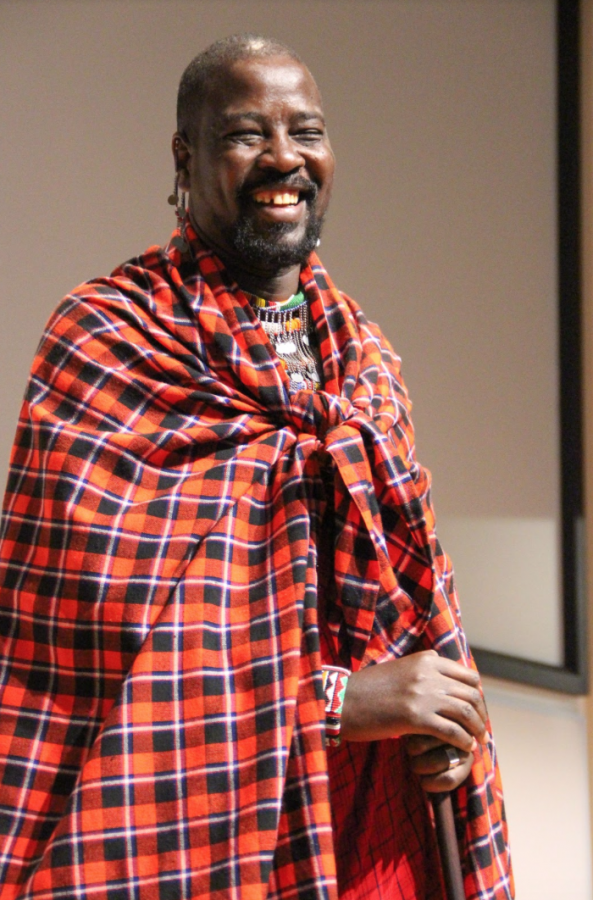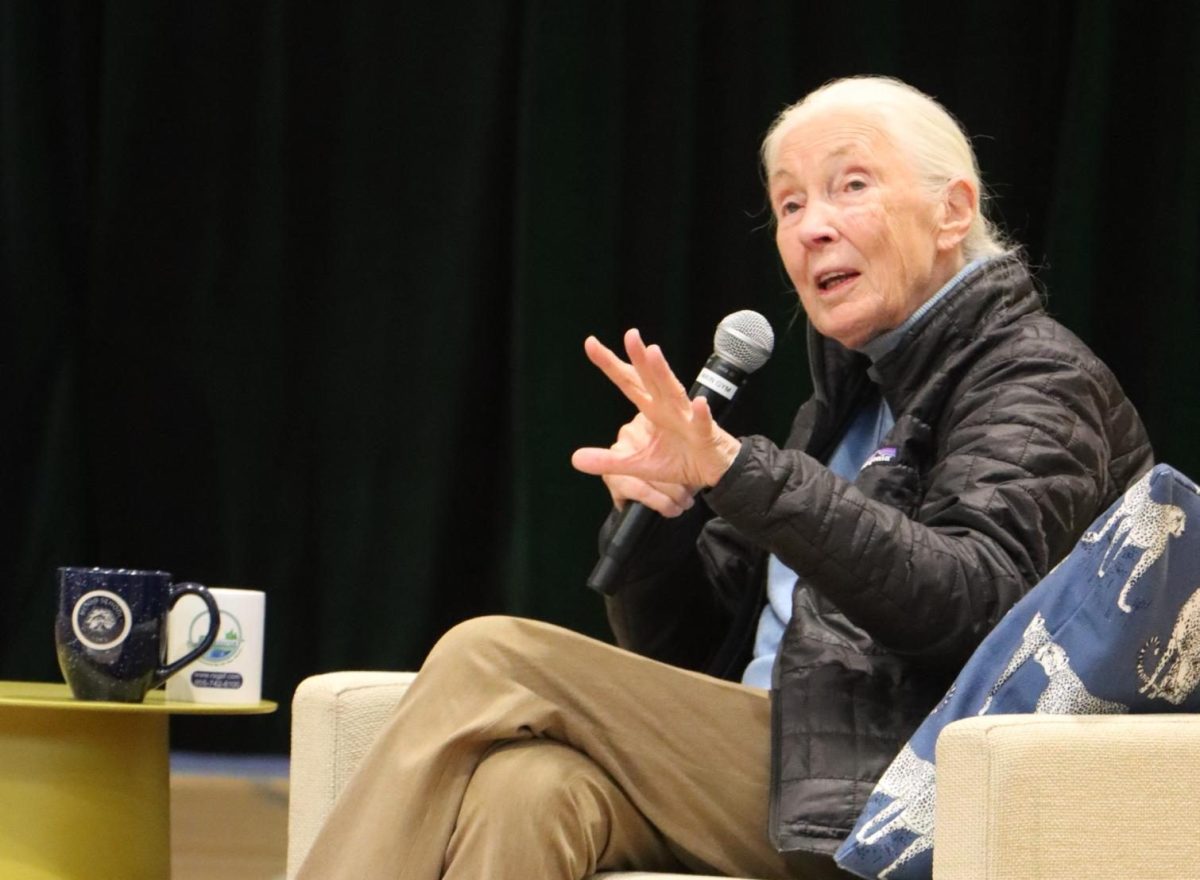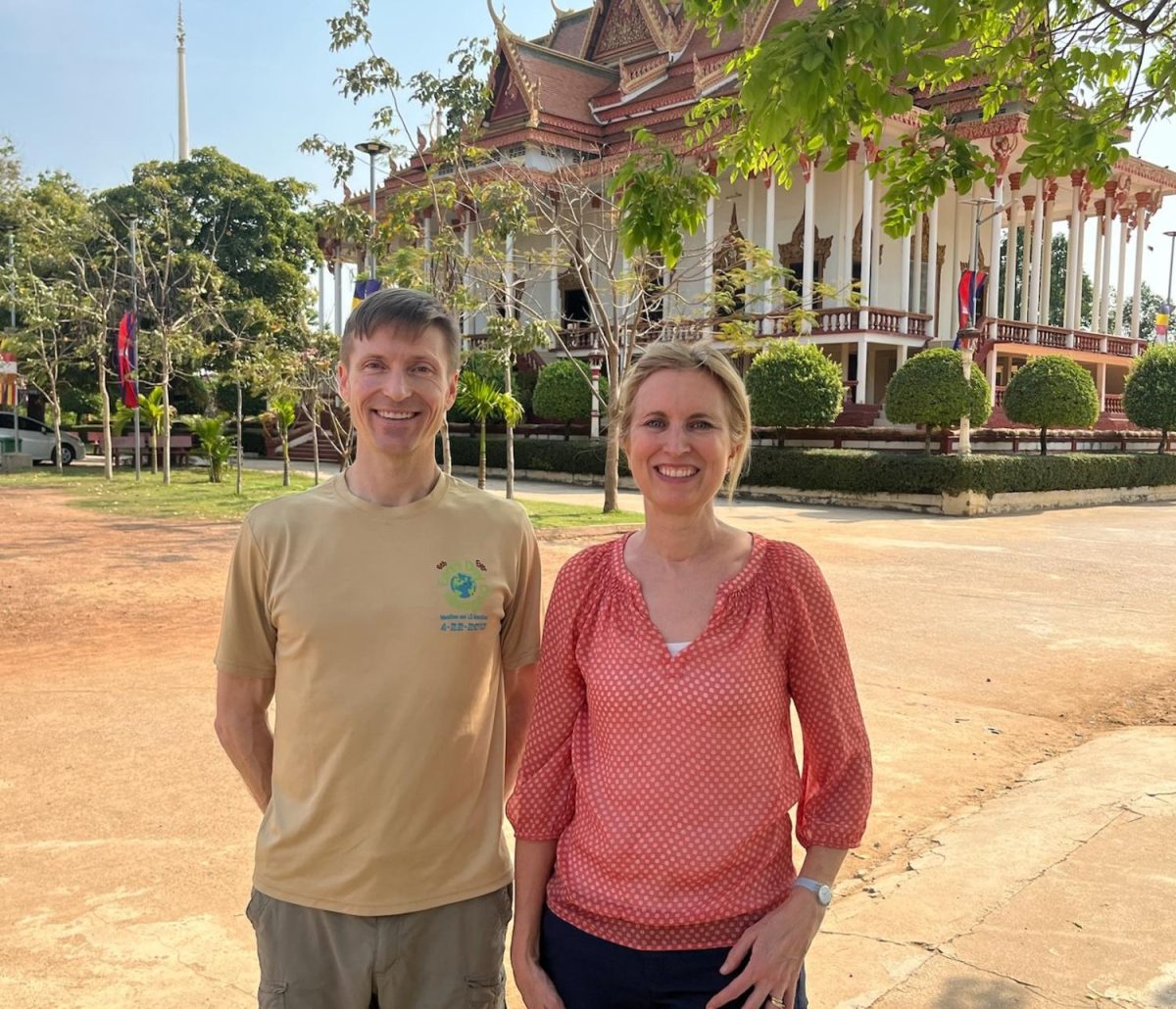Sabore Ole Oyie speaks in front of a crowd at Martin Hall. Photo by Pete Zivkov on Menlo Flickr.
By Clara Guthrie
On Friday Jan. 19th, Sabore Ole Oyie, an African tribe leader from the Serengeti region, spoke in Martin Hall about his tribal culture and his work on global water issues, women’s empowerment and education.
Ole Oyie began his talk by describing the traditions his tribe, the Maasai tribe, practices and how their daily life functions. “We live in the countryside and we are nomadic people. […] But now, the land has been demarcated so we just move our cows to where there are pastures and leave the families back home,” Ole Oyie said.
Ole Oyie continued by noting the traditions practiced during one’s youth and coming of age. For example, the tribe practices ear-piercing with red-hot wires and the removal of the two bottom teeth with knives. The children, specifically young boys, are not supposed to cry during such ceremonies. If they cry, they will not begin accumulating cows from their family which is the tribe’s form of currency. “As young men, they have to go through a lot of pain: how to take pain and survive pain. They also have to learn how to take care of the animals […] and how to communicate with them through whistling,” Ole Oyie said.
Additionally, both boys and girls undergo circumcision and female genital mutilation respectively. “It is part of [my] work to stop female genital mutilation. […] I love my culture very much, but there are some [practices] that we don’t need,” Ole Oyie said, noting his dedication to women’s rights.
After their circumcisions, boys are sent into the jungle for five to seven years to become warriors. “They learn how to listen and hear what people are speaking. They also learn respect which is very important. If [men] don’t have respect in the community, [they] are useless,” Ole Oyie said.
During his adolescence, Ole Oyie achieved warrior status and was able to finish high school after being picked as a chief within his age group. During his education, Ole Oyie was not able to wash his face before school because he was the eldest of 17 children and there was no water close to the village. In the tribe, women walk roughly eight kilometers, almost 5 miles, each way twice daily to collect water that is not even clean. “Growing up, I had the idea that clean water is something that frees you,” Ole Oyie said, “The first thing that could free the women was having water close to the village.”
Beginning around 2009, Ole Oyie raised enough money to build two wells and a bathroom facility where people could use the toilet and wash themselves near the community.
Ole Oyie is now working on building a preschool for the young children to attend. As of now, children begin school around the age of nine because the walk to school is so long, roughly six kilometers, almost four miles. “When the women come and collect water, they [could] drop the children at school […] and then in the evening, when they come back for the second round [of water], they [could] pick up the children,” Ole Oyie said, explaining his vision for the future.
Currently, Ole Oyie, along with the foundation, Sabore’s Well, is roughly one thousand dollars away from having enough money to begin construction on the preschool. They are planning on breaking ground in either May or June.








